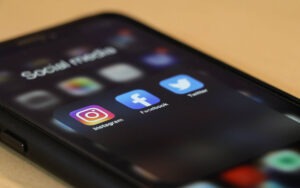October 4, 2010; The New Yorker | How did three black students refusing to leave an all-white lunch counter in Greensboro, N.C. transform into a social movement totaling some 70,000 people spread throughout the South, all within a month’s time? The number of protesters grew exponentially day by day—you could say the idea went viral. One protester, later interviewed for Dissent magazine said, “It was like a fever. Everyone wanted to go.”
Yet, as Malcolm Gladwell notes in the upcoming issue of The New Yorker, “it all happened without e-mail, texting, Facebook, or Twitter.” In his new article, Small Change: Why the revolution will not be tweeted, Gladwell says we are experiencing a time when the new tools of social media are redefining what it means to be a social activist. He writes, “Fifty years after one of the most extraordinary episodes of social upheaval in American history, we seem to have forgotten what activism is.”
What made people capable of risking their lives for social change in the 1960’s? High-risk activism is a “strong-tie” phenomenon, Gladwell explains. It is the power and strength generated from close personal ties. The “strong tie” theory suggests it was because the original four protesters in Greensboro had such close ties—friends from high school, and college dorm mates – that they were able to engage in such high-risk activism. And activists throughout the South in the civil rights era engendered these close ties.
The kind of activism associated with social media on the other hand is far different, argues Gladwell. Facebook for example is based on weak ties. It is about following people you might never ever have a chance to meet. And activism generated by social media is more likely to be widespread but low-risk, which works great for raising some amounts of money and spreading a message far and wide. But Gladwell argues, this kind of activism will never fundamentally challenge the deep-seeded status quo—rarely are people moved to risk their lives because of a social media campaign they saw on Youtube while sipping coffee in their office.
Sign up for our free newsletters
Subscribe to NPQ's newsletters to have our top stories delivered directly to your inbox.
By signing up, you agree to our privacy policy and terms of use, and to receive messages from NPQ and our partners.
This is where I think Gladwell’s argument is weakest. He doesn’t explain why a connection on Facebook or Twitter is fundamentally different than an old fashioned face-to-face relationship. Of course there are many obvious differences, but he doesn’t show how those differences make or break a social movement. Many would say strong ties are indeed fostered online.
The second reason, Gladwell argues, social media activism is different from traditional activism, is that social media is not about hierarchical organization. This is good for some types of activism, but hierarchy, says Gladwell, is exactly what made the civil rights movement of the 1960’s so powerful. Institutions and organizations like the N.A.A.C.P and the Southern Christian Leadership Conference with leaders like Martin Luther King, Jr., were what created a highly disciplined and successful movement.
Gladwell says, social media make it ever easier for activists to express themselves (tweets, updates, texts, blogs), but harder for that expression to have deep impact. The Internet and social media are very powerful tools that will never challenge the status quo, concludes Gladwell. “If you are of the opinion that all the world needs is a little buffing around the edges, this should not trouble you. But if you think that there are still lunch counters out there that need integrating it ought to give you pause.”
It’s always good to slow down and seek a new perspective, especially when the tools for social change at our disposal are changing so fast. But the Internet and social media are just that, tools. Activists should continue to master their tools so they can someday master their craft.—Aaron Lester













